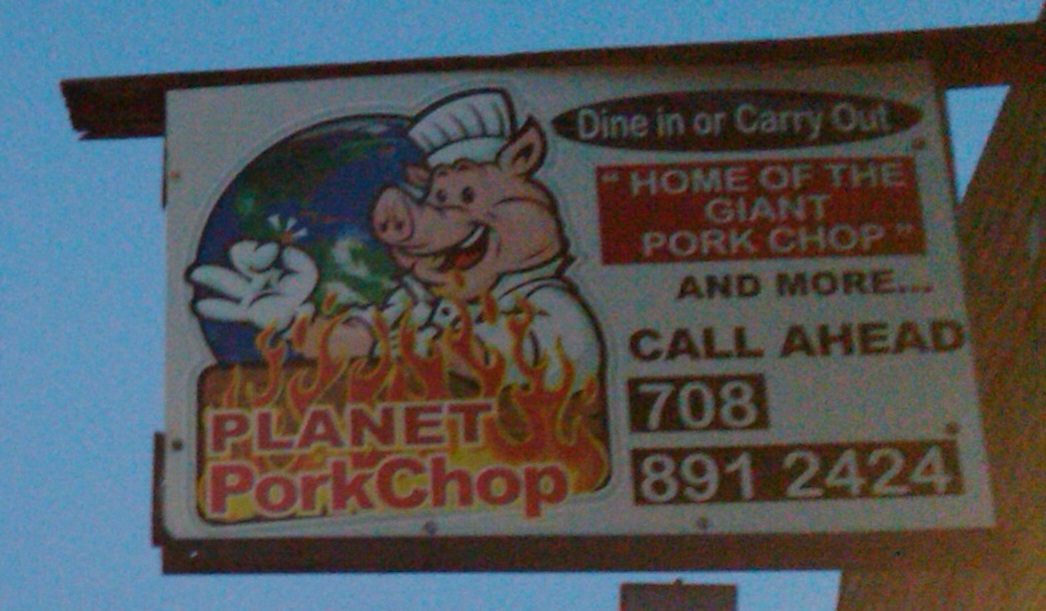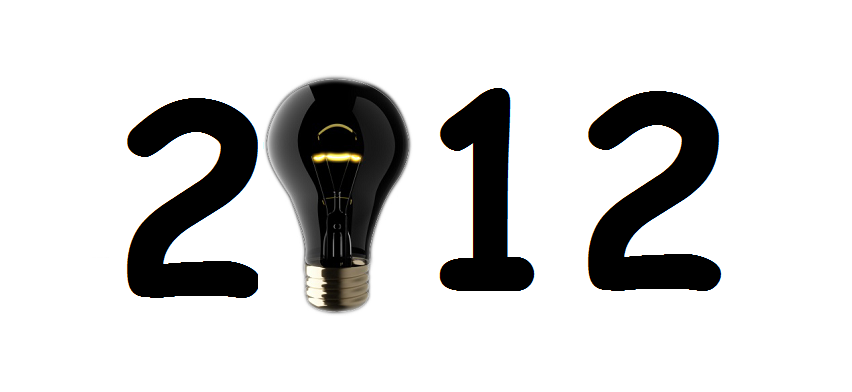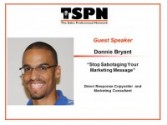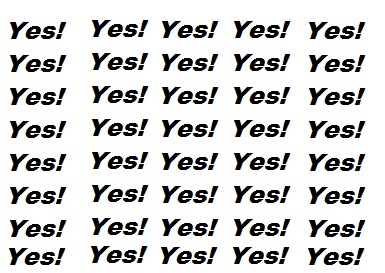The world is full of phonies, deceivers and cheats. In the arenas of advertisers and salespeople, this seems to be especially true.
Empty promises, bogus guarantees and plain ol’ swindles pervade the marketplace. Most people automatically tune out a large percentage of overt advertisements. No one trusts salespeople; they are often dismissed before they even speak. (Believe me, I’ve been there.) We all know it’s true. That’s just how things are.
In spite of that fact, a profound longing exists inside of each of us: a longing to believe. Gary Bencivenga, one of the few living legends of copywriting, teaches that “Almost everyone in the world… is desperately searching for someone to believe in. Be that person, and you can write your own ticket.” The dishonest climate of the day makes the search for that kind of person difficult. Those found to be trustworthy stand to benefit immensely.
Telling the truth can be used as a powerful business and marketing strategy.
Don’t misunderstand me. I’m not advocating a Machiavellian view of dealing with truth. 100% honesty is the only way to business. Customers and prospects deeply desire to believe, but they have been forced into skepticism. Only one arrow can pierce the armor of doubt: TRUTH.
How Can Truth-Telling Be Used As a Marketing Strategy?
When we think of establishing our credibility and building trust, we usually picture a long-term process. And it is. Allowing events to progress naturally, it can take months or years to get where you want to be.You should never tell lies or deceive. Customers need to know you’re not going to mislead them or take advantage of them. Don’t settle for marketing that is simply credible. Actually be the company that your customers can trust.
Let’s consider another perspective. Most of my readers market their products and services using direct response methods. What is one defining characteristic of direct response marketers? We do not wait for “events to progress naturally.” We don’t wait for prospects to eventually stumble across our offers and maybe buy something. We take action to cause individuals in our target audience to respond in a particular way.
Strategic truth-telling relies on the same principle.
Rather than relying on chance and (passively) watching trust grow over time, it is possible to inject “moments of truth” into otherwise normal interactions. Build your believability factor actively, purposefully. The “que sera, sera” approach is not a viable strategy.
Let me state emphatically that integrity is not a strategy. It is a way of life.
Now for the good stuff. Let’s discuss 4 specific truth-telling techniques. You will no longer have to hope that you are gaining your audience’s trust. Take action! Implement these steps and gain control of building your believability.
1. The Preemptive Strike
Have you heard the famous story about Claude Hopkins and Schlitz Beer? How one advertising campaign that took Schlitz from 5th place to being in a dead heat with the number one brand in a few months?
Hopkins tells the tale in his book, My Life in Advertising. I won’t repeat it here, but do yourself a favor and look it up. There’s a great lesson to be taken from the narrative. The major take-away from that campaign: be the first company to “tell the facts,” and you gain supremacy in the minds of your customers and prospects.
Instead of just talking about how totally rad your product is, tell the story of why it’s so great. What do you do that makes what you do so impressive?
Is there a way you can use this concept in your own marketing? Think of some aspect of your process, one ingredient you use, or anything that you can tell your audience about that they don’t know. You don’t have to be the only company doing it. You don’t have to be the first company to do it. You just have to be the first to say it. Once you’ve said it, you own it. Anyone else to make similar claims will be seen as a copy cat.
There are so many voices screaming for the attention of the masses. And as much as businesses may think they’re being unique, nearly all advertising sounds the same on the surface. You can stand out by coming at the issue from a different angle. Give meaning to the claims you make about your product, service or brand by using this classic technique of preemption.
2. Full Disclosure
Voluntary vulnerability is startlingly effective at creating credibility. I think there are 3 reasons for that.
Firstly, no one does it. Everyone is too scared to take the risk. Plus, they’ve spent so much time trying to appear to be perfect. They can’t afford to let that illusion disappear. By being one of the rare few that will be open and honest, you position yourself as one of the rare few companies or individuals worth listening to.
Secondly, you show that you care more about the truth than about your image. Your image is how you want to appear. But reality is what really matters.
Thirdly, an emotional element comes into play. Putting yourself or your company in a position of openness is not logical (or at least it doesn’t appear to be so). The result is that the listener is almost forced to react emotionally, not just intellectually.
Everyone loves the inside scoop. Confessions are always a hot ticket. When people feel like you’ve told them something “intimate” you become more of a person than a salesperson. More of a friend. Trust flows easily in that environment.
Show that you have nothing to hide. Prove that you care more about the customer experience than about your image.
This should be an aggressive technique. Remember, we’re thinking of injecting truth deliberately for the purpose of building trust. Maybe it’s as simple as endearing yourself to your email list by telling an embarrassing personal story. You didn’t have to let anyone know about the time you were tricked into climbing into a high school locker, only to find yourself locked in and abandoned (yes, that happened to me).
Make the information interesting, but also find a way to make it relevant.
Also, admit when you’re wrong, when you don’t know the answer, or when you can’t help someone. It always pays off in the long run.
3. Flattery Will Get You Nowhere – Unless It’s Genuine
No one likes a “yes man” or a butt-kisser.
If you want to be believed, have the guts to challenge conventional wisdom or popular opinions. Speak your mind. Be confident and speak authoritatively. You do not have to agree with anyone all the time, even if they’re paying you. In fact, that’ll do more harm than good for all parties involved.
That doesn’t mean be arrogant, or purposely combative. But don’t fall for the line of thinking that says “the more I tell this client how much of a genius he is, the more business I’ll get.” Think more in terms of “the truth will make you free.”
Is it just me, or do people who always have flattering words on their lips seem to be up to no good? Either they don’t have minds of their own, or they’re sycophants. It’s hard to respect either. Don’t be that person or business.
This is less a technique to be used than it is a position to be adhered to. We’re talking about strategy. You want to set yourself up as the person who will tell the truth no matter what it costs. That’s who people will trust. People will believe in you, and that’s how you get to write your own ticket, as Bencivenga says.
I’ve had a client ask tell me that I didn’t have to agree with everything he said. His ideas were great; I wasn’t trying to be obsequious. The point is that my posture was weakened slightly by the appearance that I was just going along with whatever he said. That’s not the place you want to be in.
4. Be A Giver
You should always seek to give more than you take. Provide more value than you charge for.
You should be educating your customers, not just selling to them. Education is one of the most compelling selling tools in existence. But you should give valuable content and actionable information to your audience at least as often as you ask them to buy something from you.
Being a giver is one of the surest ways to become a trusted person or organization. Of course you need to generate revenue. Your customers understand that. But if the only time they hear from you is when you have a sales pitch, you become a nuisance. They feel as if you look at them like dollar signs instead of human beings.
If you want to build credibility, to be the person or company that others believe in, help them get what they want out of life. When you look out for the needs and desires of other people, you begin to operate on a higher level.
Blogs, newsletters and content-rich emails are popular for a reason. We live in the information age. Perhaps telling the truth has never been such an important element of business success.
Be strategic in your execution. Blogs should be focused. Create content so that visitors know what to expect and how to get what they need. Self-promotion is not an effective way to gain trust. Providing info that improves people’s lives is a great way to become a trusted expert.
You can either promote yourself, or do high-quality work that does the promoting for you. Which do you think works better?
Final Thoughts
Most business people you know let their businesses “drift downstream” and hope for the best. My hope is that you are not one of those individuals. There are some things that you can’t control (the weather, for example), but there are nearly always ways to move forward with purpose and vision. Strategic truth-telling is another way to take more control over your life and business.






